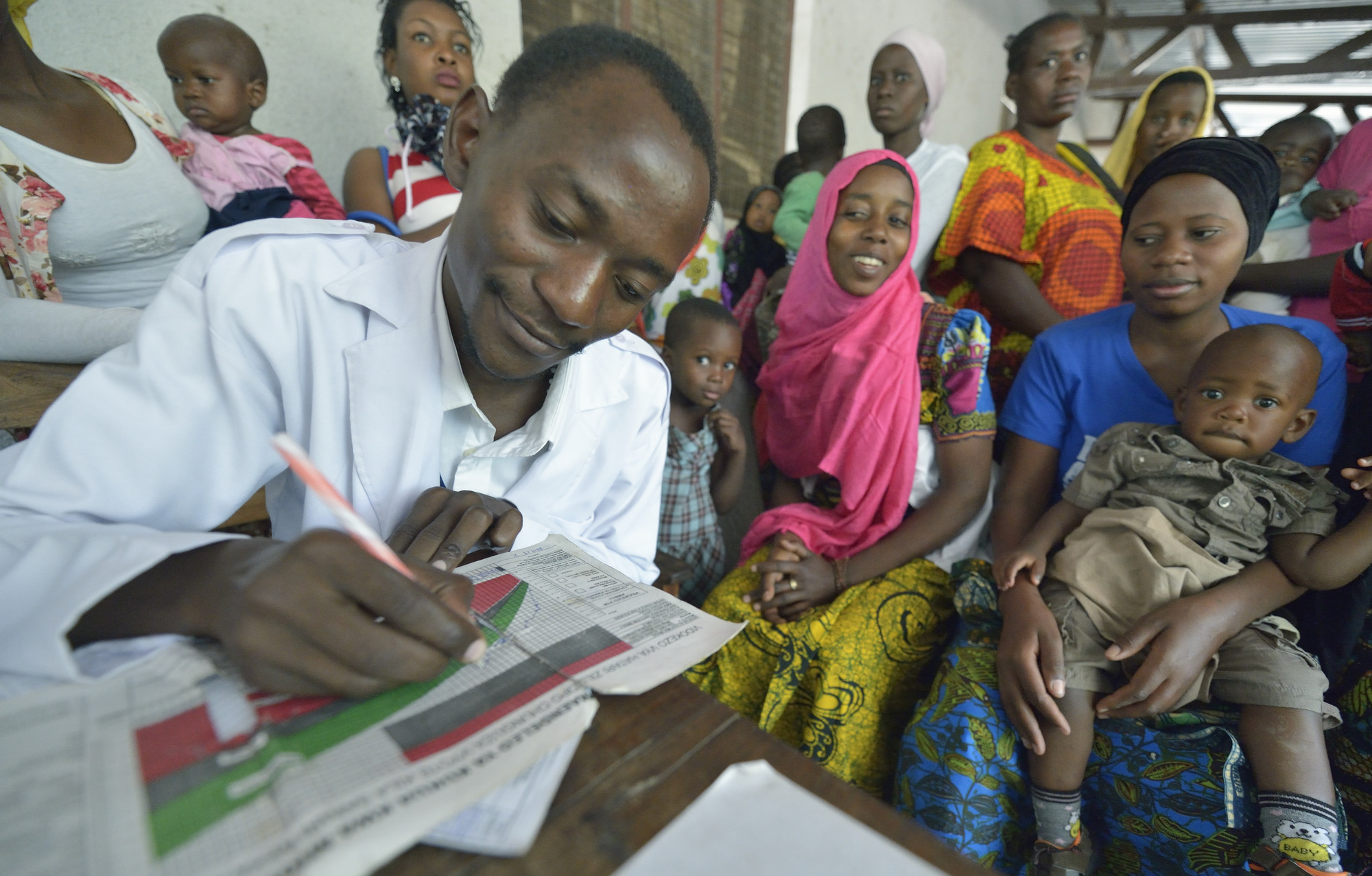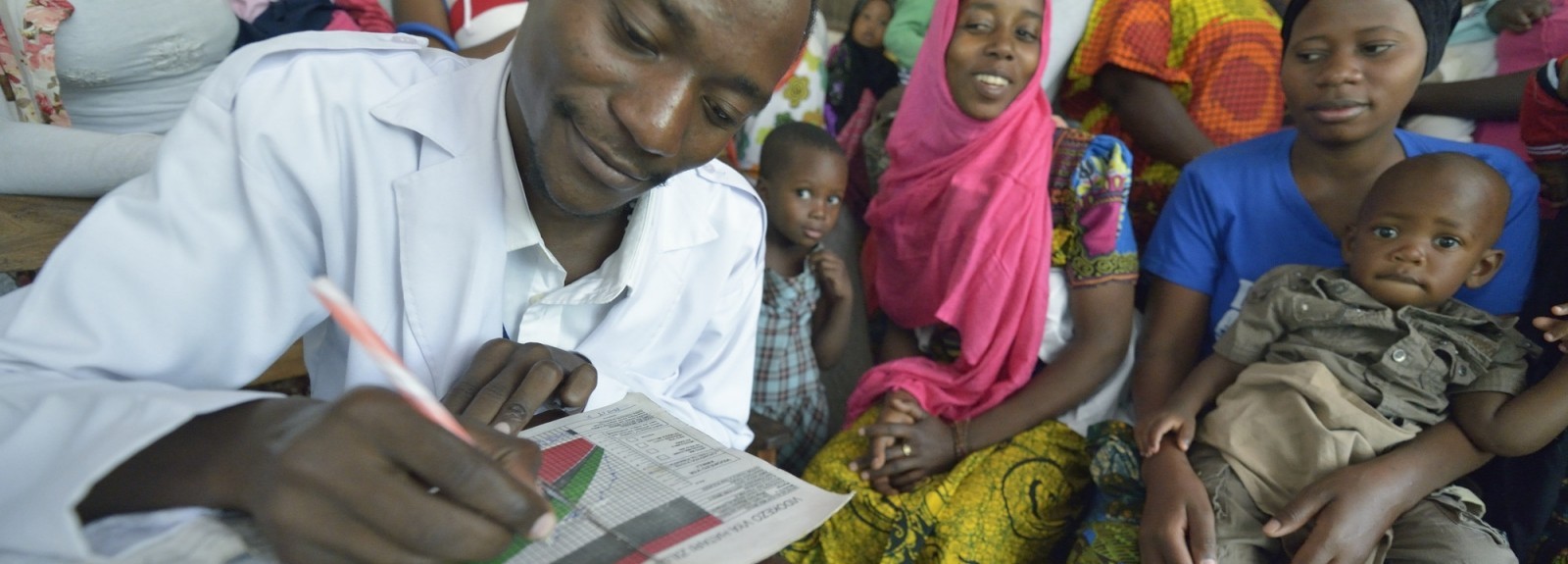Nurse Tryphone Titus Kipondya enters data on a child's growth chart during a screening for malnutrition at the Nyamagana District Hospital in Mwanza Tanzania.

The Government of Tanzania’s Ministry of Health reports large reductions in the percentage of children who are chronically malnourished (stunted) in areas where, historically, stunting has been pervasive. Stunting results from lack of proper care during pregnancy; inadequate feeding in the first two years of life; poor water, sanitation and hygiene practices; and inadequate access to health care.
IMA World Health supports the Ministry’s efforts to reduce stunting through the Addressing Stunting in Tanzania Early (ASTUTE) project, which includes interventions that improve diet, sanitation and hygiene, and early childhood development. ASTUTE’s target of reducing stunting by 7 percentage points has already been achieved or nearly achieved in four of the five regions where ASTUTE works, thanks to governmental leadership. Among Tanzania’s 30 regions where data exist, regions where ASTUTE is active ranked 2nd, 5th, 9th, and 12th in overall stunting reductions, a decline not seen previously in any of the four regions.
ASTUTE uses health facility-based counselling, home visits, support groups, radio and TV, and Positive Deviance/Hearth to improve children’s diets (including exclusive breastfeeding and complementary feeding) strengthen early child development, and encourage healthy hygiene and sanitation practices.
ASTUTE, a four-year, $28 million initiative funded by UK aid, has reached more than 4 million mothers and other caregivers of young children.


